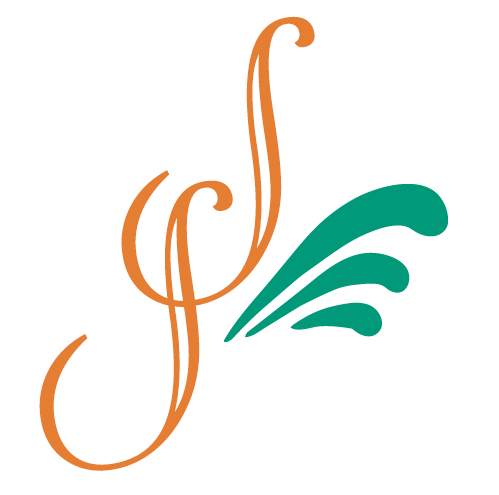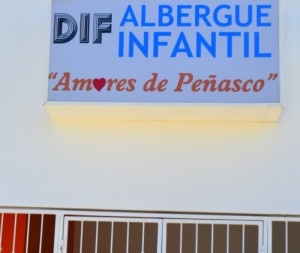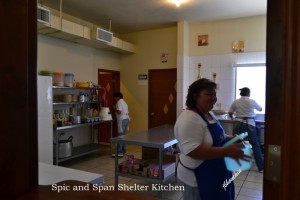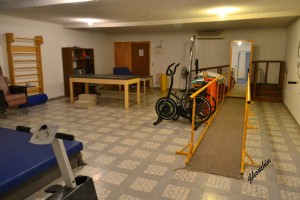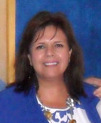If there were one season of more giving than any other here in Puerto Peñasco, it would have to be this, the Christmas season, where the spirit of giving spreads from the top of the business community to the individual residents and to the visitors alike. And there are a multitude of effective and caring charitable organizations to help those individuals and families who need and deserve assistance, and who graciously accept donations of various kinds for those they help.
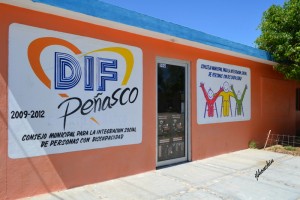
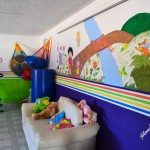 One of the oldest and more ubiquitous of those organizations is the major social assistance and family development program known as DIF (Desarrollo Integral de La Familia), founded in 1976 by the state of Sonora and designed to effectively address individual requests for support through community services segmented by municipality. Thus organized the format gave the cities control of and responsibility for the program, yet under an umbrella of support from the state. It also made the program a natural conduit to attract charitable donations from the public and private sectors to spur ongoing growth.
One of the oldest and more ubiquitous of those organizations is the major social assistance and family development program known as DIF (Desarrollo Integral de La Familia), founded in 1976 by the state of Sonora and designed to effectively address individual requests for support through community services segmented by municipality. Thus organized the format gave the cities control of and responsibility for the program, yet under an umbrella of support from the state. It also made the program a natural conduit to attract charitable donations from the public and private sectors to spur ongoing growth.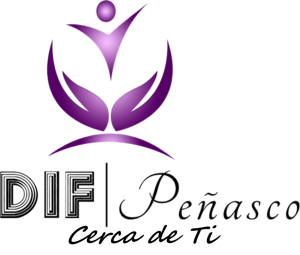
The DIF initials have become an iconic acronym for this successful program over the years and are closely associated with each city. This has helped to draw contributions and cooperation from the private sector for many major promotions that involve benefits provided for DIF. In fact, even though the DIF effort is partially funded by the municipalities and the state, its major funding comes from individual and corporate contributions.
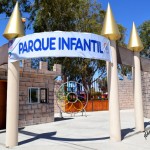 Perhaps the most effective guideline associated with the DIF organization was the one that called for the leadership of DIF to be by the First Lady of each municipal government. Since the maximum term of a Mayor is three years, this meant that the leadership of a complex operation like DIF would mandatorily change every three years—a change that might signal sure chaos. However, it has actually worked in the opposite direction for its entire 36 year history.
Perhaps the most effective guideline associated with the DIF organization was the one that called for the leadership of DIF to be by the First Lady of each municipal government. Since the maximum term of a Mayor is three years, this meant that the leadership of a complex operation like DIF would mandatorily change every three years—a change that might signal sure chaos. However, it has actually worked in the opposite direction for its entire 36 year history.
While there may be different theories as to why it has happened this way, what is most relevant is that since 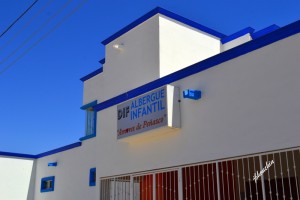 there has been little or nothing seriously “broke”, there has been nothing to be fixed by the new leadership, allowing the new First Lady’s efforts to be focused on creating ways to make the program better, leaner, meaner and more efficient while creating greater donations making it even more productive. This in turn has created a lot of confidence in potential donors who continue to provide significant funds for the dozens of major programs sponsored by DIF.
there has been little or nothing seriously “broke”, there has been nothing to be fixed by the new leadership, allowing the new First Lady’s efforts to be focused on creating ways to make the program better, leaner, meaner and more efficient while creating greater donations making it even more productive. This in turn has created a lot of confidence in potential donors who continue to provide significant funds for the dozens of major programs sponsored by DIF.
 As most of you know, we have just changed government leadership in Puerto Peñasco which means we have a new leader, known as President of DIF: The First Lady of Mayor Gerardo Figueroa Zazueta, the Honorable Rafaela Félix de Figueroa.
As most of you know, we have just changed government leadership in Puerto Peñasco which means we have a new leader, known as President of DIF: The First Lady of Mayor Gerardo Figueroa Zazueta, the Honorable Rafaela Félix de Figueroa.
It appears that the new President of DIF has “hit the ground running” as, within a matter of weeks, she had not only assembled her team but had commissioned and received a completed analysis of the state of every facility related to every program run by DIF, and it was accompanied by a total work plan based on individual diagnoses of the status and needs of each facet studied.
For your benefit, we are sharing this impressive report with you exactly as it came to us, translated by Rosie Glover, Director of the Tourist and Visitor Assistance Office in Puerto Peñasco and with the express permission of DIF management.
WORK PLAN
2012-2015
INTRODUCTION
The Dept. of Integral Family Development is the institution responsible for the care, coordination and planning of the material needs and social assistance of the population of the city, promoting social activities that help integrate the vulnerable and marginalized in the community, helping them to lead productive lives.
Municipal DIF approaches this task in several areas and with various activities to meet the needs of the population of Puerto Peñasco.
This outline describes each one of the areas, its specific purpose and the activities contemplated to improve the installations and the quality of service to the public.
MISSION
Warmly and attentively serve the needs of vulnerable families and coordinate efforts with the Municipal Government to provide quality attention to the entities within DIF (Children’s Shelter “Amores de Peñasco”, INAPAM, UBR, CMISPD, SDMF, PAASV, School Breakfast Program and Community Development).
VISION
To be an Institution recognized for Social Assistance, offering attention and support with professionalism while focused on prevention and co-responsibility in an effort to minimize the effects of poverty, marginalization and the disintegration of the family unit.
SOCIAL ASSISTANCE
OBJECTIVE: Provide low- or no-cost services to the vulnerable in the community, such as children, Women, the elderly and those with disabilities, primarily with:
- Ø Medicines
- Ø Transportation to Hermosillo for medical treatment
- Ø Lab work, x-rays, ultrasounds and tomography
- Ø Economic Assistance
- Ø Groceries
- Ø Funeral Expenses
- Ø Burial Plots
Assistance is available year-round to families and individuals of limited resources and to those temporarily faced with a difficult situation.
DIAGNOSTICS
DIF works with the private sector and the City Administration to better meet the needs of families unable to cover costs of doctor visits, medicines, and funeral expenses, as well as costs associated with travel for medical purposes, lab work and burial plots.
LEGAL DEFENSE OF FAMILIES AND MINORS
OBJECTIVE
DIF will efficiently provide Assistance to victims of family violence and consider other types of legal solicitations.
Criminal complaints will be attended through the Legal Defense of Families and Minors for matters such as: physical, psychological and/or sexual abuse, negligence, lack of care, exploitation, fetal, natural or internal abuse, and abandonment, social assistance, substance abuse, corruption of minors, alcoholism and custody of minors.
Legal Assistance will be provided and cases will be brought to the attention of the corresponding authorities as necessary for the legal protection of minors
The areas of Legal Assistance are:
- Ø LEGAL ADVICE:
- Support agreements
- Extra-judicial agreements
- Ø JUDICIAL PROCEDURES:
- Ordinary loss of Parental Rights
- Assignation of Parental Rights
- Paternity
- Naming of a Guardian
- Injunctions
As needed, this department shall:
- Examine complaints of family violence
- Offer protection to minors at risk of being victimized by family violence
- Facilitate mediation and conciliation when possible
- Open a case for verifying social work
- Establish procedural updates for ongoing cases
- Set a plan for best reintegration of the minor
- Offer psychological assistance
- Give lectures and workshops with psychological benefits for attendees
- Assist victims of violence before the office of the District Attorney
Complaints reporting family violence, negligence or abandonment can be reported via:
- Telephone, personal visit or written statement
Family Violence: Any act of power or omission meant to intentionally dominate or control, physically or verbally attack, causing psycho-emotional or sexual harm to a family member.
- Abandonment: The act of leaving one or more member of the family without the care and protection required by law.
- Negligence: The lack of protection and care on behalf of those with custody or guardianship of a minor or disabled individual.
DIAGNOSIS
For the purposes of offering the best possible Service to those citizens with most need, this agency intends to raise funds for the enlargement of the Legal Department. Currently, when there is an ongoing session in office, personnel is required to wait outdoors due to lack of space. Also needed is an economic vehicle, window coverings, paint and furniture for the office.
CHILDREN’S SHELTER “AMORES DE PEÑASCO”
Guarantee the protection and provide social assistance to minors who have been victimized, mistreated, abandoned or have lost their parents in a safe, healthy environment while more permanent living arrangements can be made or they can be reintegrated to a nuclear family.
PRINCIPAL FUNCTIONS:
- Ø Every minor housed in the Shelter will receive healthy meals, education and the medical and psychological assistance necessary to their mental and physical development as they prepare for reintegration into a nuclear family.
- Ø The Shelter will maintain an awareness of the progress made in the goal for improving the quality of life of minor children.
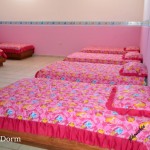
- Ø Each minor child in the Shelter will maintain adequate studies. Staff will be alerted to any adjustment problems they might have as a result of their situation.
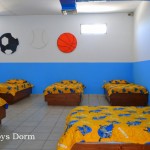 Ø Sheltered children will be kept physically and mentally safe so that they might develop and express themselves freely and without danger, with all the protection afforded them by law.
Ø Sheltered children will be kept physically and mentally safe so that they might develop and express themselves freely and without danger, with all the protection afforded them by law.
- Ø Public and/or private donations shall cover the basic needs of the sheltered minors (food, clothing, health and hygiene, school supplies, cleaning supplies, etc.), which will be utilized in an appropriate manner.
DIAGNOSIS:
The security system of the Children’s Shelter must be largely increased and continuously maintained. A better network of security cameras is necessary, as some are currently missing and others are not in working order; also needed are more security bars on doors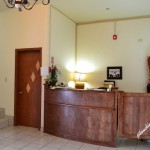 and windows and maintenance on smoke detectors and extinguishers.
and windows and maintenance on smoke detectors and extinguishers.
Very importantly, we must fill personnel vacancies at the Shelter, such as a psychologist, social worker, pediatrician, kitchen staff and child care aides. Also required are adequate supervision and training in specifics of care for sheltered children.
The second floor of the shelter needs air conditioning and the shelter exterior needs remodeling of sidewalks, paint and signs for the handicapped. The roof of the building currently leaks and needs maintenance and weatherization.
Also needed are infant bathtubs, sponges, and wall-mounted changing tables.
Children’s Shelter “Amores de Peñasco” needs a small, economic vehicle for the transportation of children to school or recreational activity.
SCHOOL BREAKFASTS
Promote a nutritional breakfast program, providing hot and cold breakfasts to improve the performance and focus of children while reducing failure and dropout rates at the primary level.
PRINCIPAL FUNCTIONS:
- To economically assist the families of participating children by providing one of the three daily meals to schoolchildren.
- Contribute to the betterment of health conditions while promoting healthier eating habits.
- Provide nutritional information (ENOA) to help promote healthier lifestyles based on a correct diet and proper hygiene in the care and handling of food.
- Provide training of school committees as to the application of the program and menu planning that includes hot and cold breakfasts.
- The School Breakfast Program will supervise the programo n school campuses.
Selection of participating children:
ü Selection will take the following into account:
ü Priority will be given to children who are in a residential program.
ü Children who are in a vulnerable condition and/or malnourished.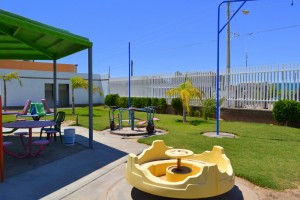
ü Children between the ages of 5 to 12 years, 11 months.
ü 100% of children in preschool or elementary schools designated for indigenous people shall receive breakfast.
ü Priority shall be given to those inscribed in Centers for Special Education.
Once those qualifying for the program have been identified as outlined above, DIF shall, at the state level, establish the regulations for strict control of the program as intended for the successful delivery of a daily hot or cold meal that beneficial and nutritious.
Cold:
Low fat milk without added flavoring or sugars
Wheat cereal or wheat crackers
Fresh or dried fruit
Hot:
Low fat milk without added flavoring or sugars
Main dish including vegetables, cereal, legumes and/or meat
Fresh fruit
DIAGNOSIS
This program is very important to the educational system of our city, yet currently we are in need of a vehicle with which to deliver the large number of meals delivered each month. The vehicle currently designated for this task is no longer in working order. The solution would be an economic pickup truck so meals can be transported even to the furthest schools without those schools having to send someone for them, which would save time a make the program more efficient.
NUTRITIONAL PROGRAM FOR VULNERABLE INDIVIDUALS
OBJECTIVE:
Contribute to the nutritional health of the vulnerable, and those who would otherwise not meet even the basic requirements for diet, providing, as well, nutritional training and orientation, thereby decreasing their vulnerability.
BENEFICIARIES
- Low-income women who are pregnant and/or lactating
- Disadvantaged senior citizens
- Low-income people who have a particular disadvantage or handicap
Once accepted into the program, assistance shall be for one year, so long as program participants are not also participating in a similar program elsewhere or have not been moved to an institution
PREREQUISITES
- Elaboration of an outline of showing the demographic of the families meeting the requirements for inclusion in the Program
- Signed agreement of participation between DIF Sonora and DIF of the various municipalities
CHARACTERISTICS OF ASSISTANCE
- Monthly donation of food (groceries)
- Orientation on subject of nutrition
DIAGNOSIS
This program is also in need of a vehicle to be used to deliver food to program participants, especially those with handicaps that impede their ability to travel to DIF for their food. The same vehicle used for the School Breakfast program can be used here.
COMMUNITY TRAINING & DEVELOPMENT PROGRAM
OBJECTIVE:
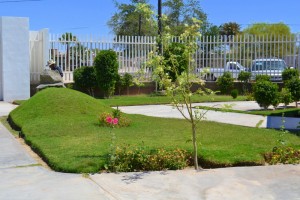 Boost community development, promoting organized employment training for the economic betterment of families and the community by way of productive programs that are diverse and meet the needs of the community.
Boost community development, promoting organized employment training for the economic betterment of families and the community by way of productive programs that are diverse and meet the needs of the community.
Current courses offered:
ü Dressmaking
ü Crafts
ü Beauty
ü Pastrymaking
*Courses are offered year-round
Promote fellowship and family unity with big events that promote those values in the community.
DIAGNOSIS
Scheduled events for the Community Training & Development Program are:
Three Kings Day January
Day of the Family March
Day of the Child April
Mother’s Day May
Grandparent’s Day August
Black and White Ball November
In order to provide the community with more and better services, we need the following: 4 work tables, 30 plastic chairs, paint, a hair washing sink, multiple extention cords, hair dryers, sewing machines, mixers and glue guns.
The Nueva Esperanza Community Center is in very poor conditions. The section where medical consultations were offered is without a roof. It needs a general remodeling in order to reap the maximum benefit from the facility, which would allow the front part to house community courses in that colonia.
In December, DIF will initiate a new outreach program, DIF CERCA DE TI (DIF Near You), bringing free medical examinations and legal advice, social services, haircuts and donations of clothing to low-income colonias.
OBJECTIVE:
Provide services of prevention, rehabilitation and social re-integration to low-income people with disabilities, stimulating their participation in the community.
PRINCIPAL FUNCTIONS:
- Ø Offer specialized medical attention to those with musculoskeletal or neurological disorders
- Ø Offer alternative therapies for rehabilitation in order to improve the quality of life of children and adults living with temporary or permanent disability.
- Ø Apply simplified techniques for rehabilitation.
- Ø When necessary, refer to CREE or CRIT in Hermosillo for further medical valuation or more specialized physical therapy.
DIAGNOSIS:
The Basic Rehabilitation Unit needs general improvements such as interior and exterior paint, new windows and replacement of doors that are currently in disrepair
New floors are needed. The current floor is so old as to look dirty even when clean. Air conditioning units are needed in the children’s physical therapy area and in the Coordinator’s office.
Cords for the computers must be reassigned with self-adhering covers against the wall.
The furniture is in bad condition, as are the kitchen and therapy area, which are in need of remodeling. The pantry should also be reorganized.
Rehabilitation equipment and instruments are needed, as are reinstallation and maintenance of the hydrotherapy equipment.
The bathrooms must be modified to accommodate the handicapped, with wider spaces and toilets and sinks that are handicapped-accessible.
The Basic Rehabilitation Unit intends to provide the handicapped with transportation to and from therapy. People must be discouraged from missing their appointments for therapy, as it is an important part of their mental and physical well-being. For this, a van with wheelchair ramp and security hooks for wheelchairs is needed.
MUNICIPAL COUNCIL FOR THE SOCIAL INTEGRATION OF THE HANDICAPPED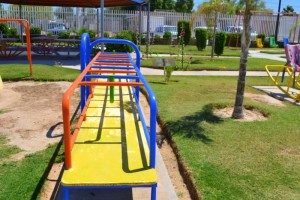
OBJECTIVE:
Offer services and support by way of rehabilitaton and social integration programs for the handicapped, which will in turn boost and fortify their personal growth and help them be more productive and social for the benefit of the community.
PRINCIPAL FUNCTIONS:
- Ø Integrate a municipal pattern of disability, detecting their geographical location within the city, for the purposes of helping us formúlate a strategy for assisting this segment of our population.
- Ø Seek expedition of credentials for those handicapped people who don’t already have it.
- Ø Work with the business community to place more handicapped workers in the workforce.
- Ø Secure educational, athletic and general scholarships for the handicapped.
- Ø Financially support the creation, expansion or consolidation of micro-companies that are viable as Productive Projects.
- Ø Promote sports for the handicapped within the general population, inviting handicapped athletes to join the new wheelchair basketball team.
- Ø Expedite cards for use in the blue boxes for individuals with temporary or permanent motor skill disability.
DIAGNOSIS:
The CMISPD office needs to be enlarged for the comfort of those who need it.
It’s necessary to frequently replenish office supplies and documents specific to the needs of the handicapped, such as the specific paper and ink required for the identifications required. Also needed are gas vouchers for the executive who will be in charge of monthly home visits.
NATIONAL INSTITUTE FOR SENIOR CITIZENS OF PUERTO PEÑASCO
OBJECTIVE:
Promote the well-being of senior citizens with employment, assistance and opportunities for personal development that will give them a higher lifestyle, reducing incidents of inequality and unfairness.
PRINCIPAL FUNCTIONS:
- Ø Promote programs that are of particular interest to the senior citizens in Puerto Peñasco.
- Ø Offer classes and training for Senior Citizens that will give them creative and recreational outlets while also allowing them in some cases benefit financially.
- Ø Encourage the private sector to hire Senior Citizens so that they might remain actively involved in the workforce.
- Ø Establish agreements with the private sector whereby services and products might be offered to Senior Citizens at discounted rates.
- Ø Expedite identification cards for citizens above age 60, allowing them to more easily benefit from discounts on transportation, medicines, food, recreational activities and more.
- Ø Encourage Senior Citizens to participate in athletic activity that will continue to benefit them physically and permit them to compete with seniors in other cities.
- Ø Establish clubs and community spaces where they might meet and interact with others over age 60, offering diverse activities for personal, social, educational or athletic development.
- Ø Encourage the participation of senior citizens in identifying problems specific to them and seeking their participation in resolving those issues.
DIAGNOSIS:
In order to keep senior citizens mentally and physically active, table games will be made available to them at the Senior Center. Other physical activities will also be made availalbe to them.
New courses and workshops will be made available, such as folkloric dance and crafts.
The club, “Mar de Cortez” is intended to give senior citizens an outlet of physical and recreational activities and encouraging fellowship with senior citizen groups from other cities.
Develop more social activities for Senior Citizens with the emphasis on programs currently in existence, such as: last Saturday breakfast, grandparent’s day celebrations, Senior Citizen Week, Noche Mexicana, El Baile del Recuerdo, among others.
DIF has reached an agreement with the municipal government to relocate the offices of INAPAM at the Club “Mar de Cortez”, making it necessary to remodel the interior of those offices. This is all done with the intention of improving the lives of seniors and helping them lead as productive and satisfying lives as they possible can and giving them the satisfaction of social interaction with other seniors.
##End of Work Plan##
The Sonoran Resorts are delighted to be working with the City of Puerto Peñasco and DIF as the recipients of our 2nd Annual Holiday Food Drive. We also hope this information gives you, our readers, the confidence and motivation to assist our efforts by dropping off non-perishable food items to any of the sales offices at the Sonoran Spa, Sea, Sun or Sky; or stopping by the Tourist and Visitor Assistance Office in the blue Tequila Factory building one block south of 13th Street on the east side of Benito Juarez where Director Rosie Glover will gratefully accept your donations.
This blog is powered by www.sonoranresorts.mx, Jim Ringquist, Director of Sales and Marketing.

